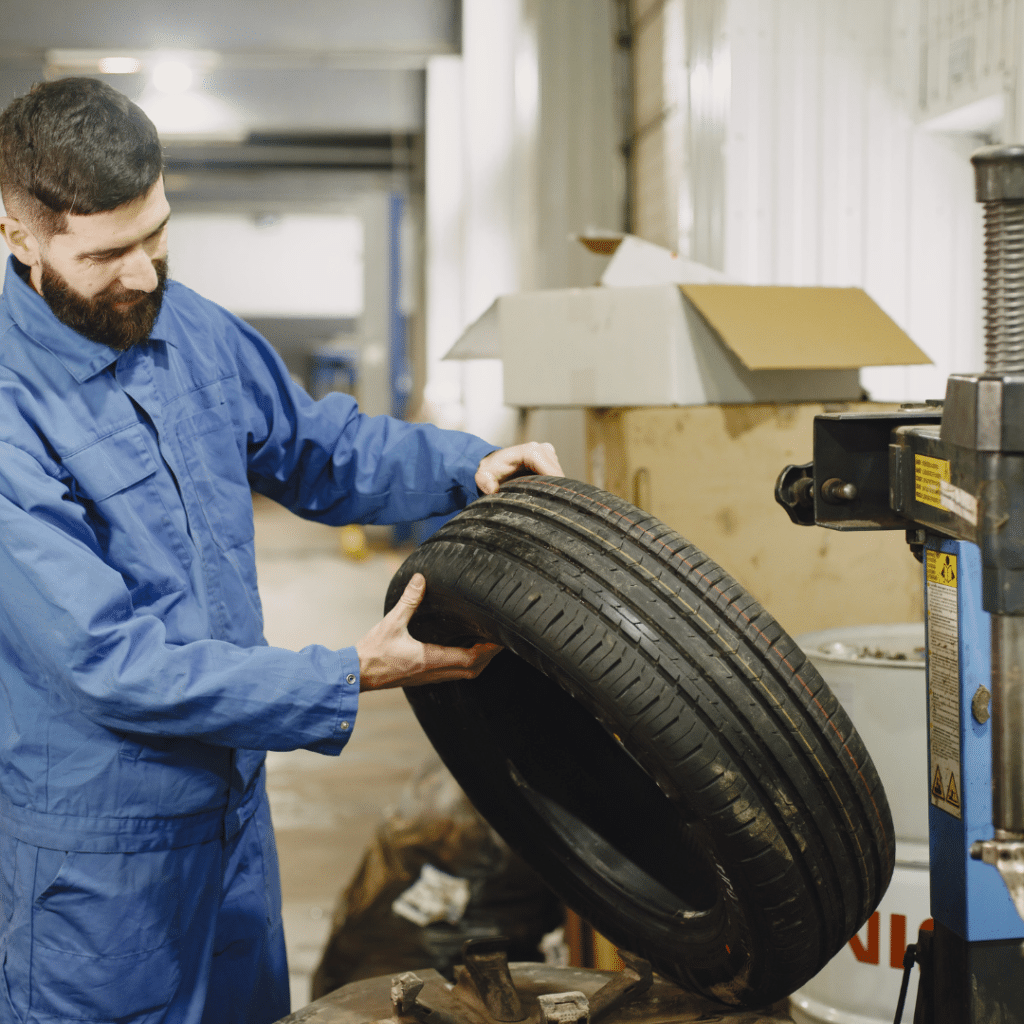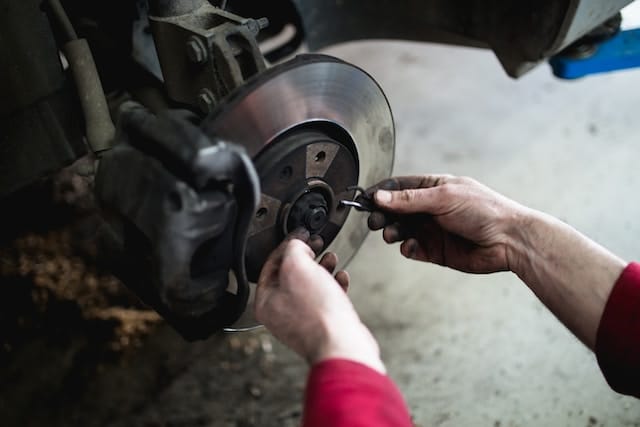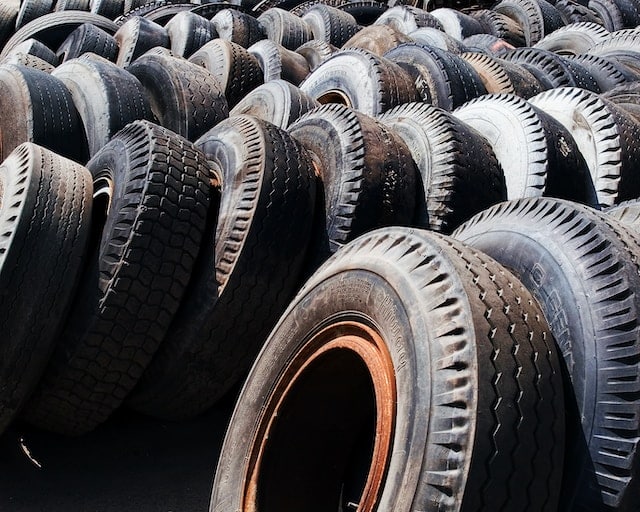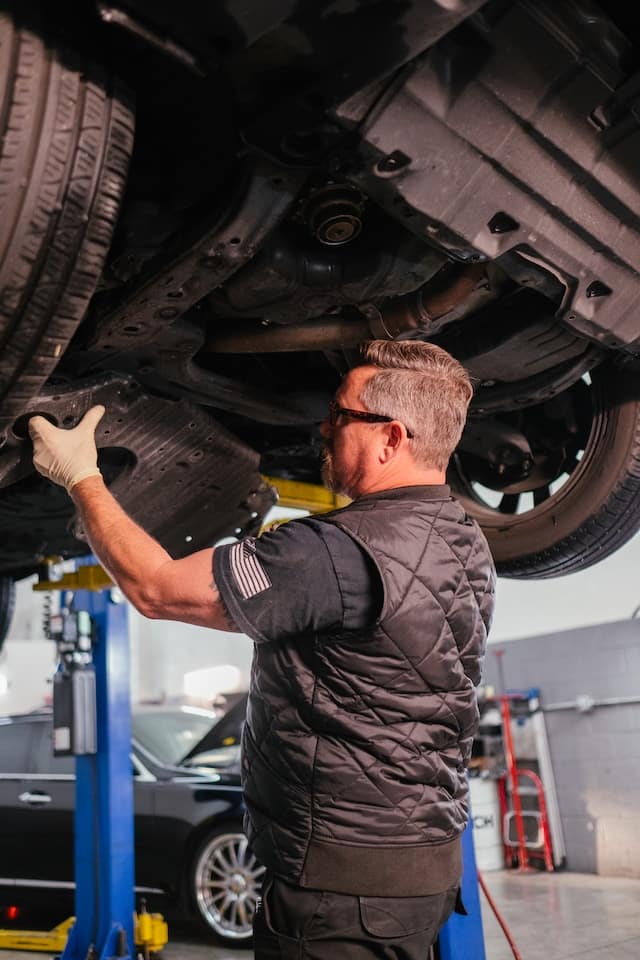
Driving should ideally be a smooth and quiet experience. However, if you’ve noticed a humming noise while driving, it’s crucial to address it promptly. This article will help you understand the potential causes of this common car issue and provide effective solutions.
| Category | Potential Causes | Symptoms | Diagnosis and Repair |
|---|---|---|---|
| Tires | Improper inflation, unbalanced wheels | Humming gets louder with speed | Check inflation, balance wheels |
| Wheel Bearings/Hub Assembly | Wear and tear, damage | Humming or growling noise | Inspect and replace if needed |
| Drivetrain | Transmission, differential, driveshaft issues | Humming noise during acceleration | Professional mechanic diagnosis |
| Brakes | Worn-out brake pads, failing brake caliper | Humming or grinding noise when braking | Replace brake components |
| Power Steering | Failing pump, low fluid | Humming or whining noise when steering | Check fluid, replace pump if necessary |
Humming Noise in Car Getting Louder with Speed: Check the Tires First
A humming or droning noise that increases with vehicle speed is most likely caused by the tires or wheels. As the car goes faster, the tires rotate at higher speeds against the road surface. If the tires are improperly inflated or the wheels are unbalanced, this can cause vibrations that create a humming sound.

The connection between speed and noise is that the faster the wheels turn, the faster the tire tread hits the road. This rapid vibration against the road surface creates sound waves that we hear as humming inside the car. The speed of the wheel rotation directly correlates to the frequency of the sound waves produced. Therefore, an unbalanced or underinflated tire will make a louder droning noise as wheel speed increases.
[lasso id=”5415″ link_id=”1822″ ref=”amzn-astroai-tire-inflator-portable-air-compressor-air-pump-for-car-tires-car-accessories-12v-dc-auto-pump-with-digital-pressure-gauge-100psi-with-emergency-led-light-for-bicycle-balloons” sitestripe=”true”]Proper tire inflation pressure reduces vibration, while wheel balancing ensures even weight distribution to prevent wobbling. Checking these two areas can help diagnose and fix an issue of increased humming noises when accelerating.
Understanding the Humming Noise While Driving
A humming noise while driving can vary in intensity and pitch, but it is typically constant and becomes louder as your vehicle speeds up. This sound is often a sign that something in your vehicle may not be functioning correctly and requires attention.
Potential Causes of a Humming Noise While Driving
Several issues can cause a humming noise in your vehicle:
Wheel Bearings or Hub Assembly Issues

These parts allow your wheels to turn freely, and when they wear out, they can create a humming noise.
[lasso id=”5415″ link_id=”1823″ ref=”amzn-astroai-tire-inflator-portable-air-compressor-air-pump-for-car-tires-car-accessories-12v-dc-auto-pump-with-digital-pressure-gauge-100psi-with-emergency-led-light-for-bicycle-balloons” sitestripe=”true”]The wheel bearings and hub assembly are critical components of your vehicle’s drivetrain. They allow the wheels to rotate freely on the axle, bearing the weight of the vehicle and enduring the forces generated from the wheels when turning and over uneven surfaces.
Wheel bearings are typically sealed units packed with lubricant to reduce friction. They are either separate components or integrated into a hub assembly depending on the design of the vehicle. The hub assembly is a pre-assembled unit that includes the hub, wheel bearing, and in some cases, the ABS wheel speed sensor.
[lasso id=”5401″ link_id=”1824″ ref=”amzn-noco-boost-plus-gb40-1000a-ultrasafe-car-battery-jump-starter-12v-battery-pack-battery-booster-jump-box-portable-charger-and-jumper-cables-for-6-0l-gasoline-and-3-0l-diesel-engines-gray” sitestripe=”true”]Issues and Symptoms
Wear and Tear
Over time, the wheel bearings or hub assembly can wear out due to constant use, exposure to dirt, water, and heat, or lack of lubrication.
Damage
Wheel bearings can also become damaged from driving through deep potholes, over speed bumps at high speeds, or hitting curbs, which can lead to premature wear and tear.
Noise
When wheel bearings wear out or get damaged, they can start to make a humming or growling noise. This noise typically gets louder as the vehicle speeds up and may change or get louder when turning in a particular direction. This happens because the worn-out bearings can’t ensure smooth operation of the wheel on the axle, leading to increased friction and vibration that results in a humming noise.
Diagnosis and Repair
If you suspect your vehicle’s wheel bearings or hub assembly are causing a humming noise, a mechanic can diagnose this by elevating the vehicle and checking for play in the wheels or listening for noise with a mechanic’s stethoscope. They can also rotate the tires manually to listen for the noise.
If the wheel bearings or hub assembly are indeed the problem, they will need to be replaced. In many modern cars, the wheel bearing and hub are an integrated assembly and need to be replaced as a single unit. This is typically a job for a professional mechanic due to the complexity of the task and the need for specialized tools.
Regular inspection and maintenance of your vehicle can help identify worn-out or damaged wheel bearings early, potentially preventing further damage and ensuring a quiet and smooth ride.
[lasso id=”5401″ link_id=”1825″ ref=”amzn-noco-boost-plus-gb40-1000a-ultrasafe-car-battery-jump-starter-12v-battery-pack-battery-booster-jump-box-portable-charger-and-jumper-cables-for-6-0l-gasoline-and-3-0l-diesel-engines-gray” sitestripe=”true”]Tire Issues

Uneven tire wear, unbalanced tires, or low tire pressure can lead to a humming sound.
Tires are the only parts of your vehicle that make direct contact with the road, and they play a critical role in ensuring a smooth and safe driving experience. However, various issues related to tires can lead to a humming noise while driving.
[lasso id=”5415″ link_id=”1826″ ref=”amzn-astroai-tire-inflator-portable-air-compressor-air-pump-for-car-tires-car-accessories-12v-dc-auto-pump-with-digital-pressure-gauge-100psi-with-emergency-led-light-for-bicycle-balloons” sitestripe=”true”]Issues and Symptoms
Uneven Tire Wear
Tires can wear unevenly for a variety of reasons, including misalignment, improper inflation, or failing to rotate the tires regularly. Uneven wear can cause your tires to become unbalanced, leading to vibration and a humming noise while driving.
Unbalanced Tires
If your tires are not balanced correctly, it can lead to uneven tire wear and vibration that can cause a humming noise. This is because the weight of the car is not evenly distributed across all four tires.
Damaged Tires
Any damage to the tire, such as a bulge, blister, or a puncture, can also cause a humming noise when driving. This is due to the irregular rotation of the damaged tire.
Low Tire Pressure
If your tires are underinflated, they can create a humming or droning noise. This is because low pressure changes the shape of the tire and increases its contact area with the road, leading to increased friction and noise.
Diagnosis and Repair
[lasso id=”5415″ link_id=”1827″ ref=”amzn-astroai-tire-inflator-portable-air-compressor-air-pump-for-car-tires-car-accessories-12v-dc-auto-pump-with-digital-pressure-gauge-100psi-with-emergency-led-light-for-bicycle-balloons” sitestripe=”true”]Tire-related issues can often be diagnosed visually or with simple tools. For example, uneven wear can be spotted by looking at the tire tread. Unbalanced tires can be detected with a tire balancing machine at a garage. Damage to the tire is often visible, and low pressure can be detected with a tire pressure gauge.
The solutions for tire-related issues causing a humming noise include:
Uneven Tire Wear
If your tires are wearing unevenly, a wheel alignment service may be needed. Regular tire rotations can also help prevent uneven wear.
Unbalanced Tires
If your tires are unbalanced, a tire shop can rebalance them to ensure even weight distribution.
Damaged Tires
Damaged tires should be repaired or replaced as soon as possible.
Low Tire Pressure
If your tires are underinflated, inflate them to the recommended PSI (pounds per square inch) listed in your vehicle’s owner’s manual or on the placard located on the driver’s side door jamb.
Regular tire maintenance, including checking tire pressure, rotating your tires, and having your alignment checked, can help prevent these issues and ensure a quiet, smooth ride.
[lasso id=”5415″ link_id=”1828″ ref=”amzn-astroai-tire-inflator-portable-air-compressor-air-pump-for-car-tires-car-accessories-12v-dc-auto-pump-with-digital-pressure-gauge-100psi-with-emergency-led-light-for-bicycle-balloons” sitestripe=”true”]Drivetrain Problems

Problems with the drivetrain, including the differential or the transmission, can cause a humming noise.
The drivetrain is a system of components that delivers power from your vehicle’s engine to the wheels. It consists of several parts, including the transmission, driveshaft, and differentials, all of which can potentially lead to a humming noise if there’s an issue.
Issues and Symptoms
Transmission Issues
The transmission, whether automatic or manual, can produce a humming noise when there are issues such as low transmission fluid, worn-out gears, or failing bearings.
Differential Problems
The differential is a component that allows the wheels to spin at different speeds, particularly important when turning. Problems with the differential, such as low fluid levels, worn gears, or failing bearings, can cause a humming noise. The noise typically gets louder during acceleration and may change when turning.
Driveshaft Issues
The driveshaft transfers power from the transmission to the differentials. If the U-joints that connect the driveshaft to the rest of the drivetrain are worn out or if the driveshaft is out of balance, it can lead to a humming noise.
Diagnosis and Repair
Diagnosing drivetrain problems often requires the expertise of a professional mechanic due to the complexity of these systems. They may use various techniques, such as test driving the car, using a mechanic’s stethoscope to listen for unusual sounds, or inspecting the components visually or with diagnostic tools.
Repair methods depend on the specific issue:
Transmission Issues
This might involve changing the transmission fluid, replacing worn-out gears, or fixing or replacing the bearings.
Differential Problems
Repairs could include changing the differential fluid, repairing or replacing worn gears, or replacing the bearings.
Driveshaft Issues
Fixes may involve replacing the U-joints or balancing the driveshaft.
Regular maintenance of your vehicle’s drivetrain, such as periodic checks and changes of transmission and differential fluids, can help prevent these problems and ensure a quiet, smooth ride. It’s also important to address any unusual noises as soon as they occur to prevent further damage to your vehicle’s drivetrain.
[lasso id=”5401″ link_id=”1829″ ref=”amzn-noco-boost-plus-gb40-1000a-ultrasafe-car-battery-jump-starter-12v-battery-pack-battery-booster-jump-box-portable-charger-and-jumper-cables-for-6-0l-gasoline-and-3-0l-diesel-engines-gray” sitestripe=”true”]Other Causes
The humming noise may also be due to other issues such as worn-out brake pads or a failing power steering pump.
Brake Issues
Brake problems can occasionally cause a humming noise. Worn-out brake pads or a failing brake caliper can cause a constant humming or grinding noise. The noise might become more noticeable when you apply the brakes.
Power Steering Pump Issues
The power steering pump makes steering your vehicle easier. If it’s failing or if the fluid level is low, it can cause a humming or whining noise. The noise may become louder when you turn the steering wheel.
Power Steering Pump and Cold Start
Your car’s power steering pump is responsible for supplying hydraulic fluid to the steering system, making it easier to turn the wheels. When you start your car in cold weather, the fluid is thicker and can take more time to circulate, which might cause the power steering pump to make a humming or whining noise. As the engine warms up and the fluid thins out, the noise should subside. If the noise doesn’t go away as the car warms up, it may indicate a problem with the power steering pump or the fluid itself.
Failing Alternator
The alternator is a key component of your vehicle’s electrical system. It is responsible for charging the car battery and powering the electrical system while the engine is running. A failing alternator can indeed cause a humming or whining noise. This is due to the fact that it contains bearings that can wear out over time, causing a humming sound.
In addition to the noise, a failing alternator can also cause various electrical issues in your car, such as dim headlights, difficulty starting the car, a battery warning light on the dashboard, or the loss of power to various systems. If you suspect your alternator is failing, it’s crucial to have it checked and repaired as soon as possible. A failing alternator can lead to a dead battery or leave you stranded if the car’s electrical system loses power.
[lasso id=”5401″ link_id=”1830″ ref=”amzn-noco-boost-plus-gb40-1000a-ultrasafe-car-battery-jump-starter-12v-battery-pack-battery-booster-jump-box-portable-charger-and-jumper-cables-for-6-0l-gasoline-and-3-0l-diesel-engines-gray” sitestripe=”true”]Engine Issues
Certain engine problems, such as issues with the serpentine belt, timing belt, or any of the pulleys, can cause a humming noise. This can often be diagnosed by the noise becoming louder as the engine RPMs increase.
Exhaust System Issues
Problems with the exhaust system, such as a hole in the muffler or a loose exhaust pipe, can also lead to a humming noise. The sound will typically be louder during acceleration.
Air Conditioning Compressor Issues
The air conditioning compressor can cause a humming noise when it’s failing or when the system is low on refrigerant. The noise will usually be noticeable when the air conditioning system is running.
Diagnosis and Repair
Diagnosing these issues will typically require the expertise of a professional mechanic due to the complexity of these systems. They may use various techniques, such as visually inspecting the vehicle, using a mechanic’s stethoscope to listen for unusual sounds, or using diagnostic tools.
The solutions for these issues will vary based on the specific problem. Brake issues might require replacing the brake pads or servicing the calipers. Power steering pump issues may be resolved by topping up the fluid or replacing the pump. Engine and exhaust system issues will typically require a mechanic to identify and replace the faulty parts. If the issue is with the air conditioning compressor, it may need to be replaced or the system might require recharging with refrigerant.
Regular maintenance of your vehicle, including periodic checks of the brakes, power steering system, engine, exhaust, and air conditioning systems, can help prevent these issues and ensure a quiet, smooth ride. It’s also important to address any unusual noises as soon as they occur to prevent further damage to your vehicle.
[lasso id=”5401″ link_id=”1831″ ref=”amzn-noco-boost-plus-gb40-1000a-ultrasafe-car-battery-jump-starter-12v-battery-pack-battery-booster-jump-box-portable-charger-and-jumper-cables-for-6-0l-gasoline-and-3-0l-diesel-engines-gray” sitestripe=”true”]Diagnosing the Source of the Humming Noise

Identifying the source of the humming noise often involves observing when the noise occurs and how it changes with your vehicle’s speed or when turning. However, due to the complexity of vehicles, professional diagnosis can often be the most effective way to pinpoint the exact cause.
Solutions to the Humming Noise While Driving
Depending on the cause, solutions may include:
Wheel Bearings or Hub Assembly
These parts will need to be replaced if they are the cause of the humming noise.
Tire-Related Issues
Rotate, balance, or inflate your tires as needed. In some cases, new tires may be required.
Drivetrain-Related Problems
These can be complex and usually require a professional mechanic to fix.
Other Issues
Depending on the cause, solutions can range from replacing brake pads to servicing the power steering pump.
[lasso id=”5401″ link_id=”1832″ ref=”amzn-noco-boost-plus-gb40-1000a-ultrasafe-car-battery-jump-starter-12v-battery-pack-battery-booster-jump-box-portable-charger-and-jumper-cables-for-6-0l-gasoline-and-3-0l-diesel-engines-gray” sitestripe=”true”]Understanding the Costs: Repairing a Vehicle with a Humming Noise
Repair costs for a vehicle experiencing a humming noise while driving can vary widely based on the specific cause of the issue. Here are some potential categories and cost ranges for these repairs:
Wheel Bearings or Hub Assembly Replacement
The cost for this service can range from $150 to $600 per wheel. Factors influencing the cost include the make and model of the vehicle, the extent of the damage, and whether it’s the front or rear wheel bearings that need replacement.
Tire-Related Repairs
Balancing a tire can cost around $15 to $75 per tire. For new tires, you may spend from $50 to $300 per tire based on the brand and type of tire suitable for your vehicle. Wheel alignment services may cost between $50 and $120.
Drivetrain Repairs
Transmission repair costs can range from $500 to $2,000, while rebuilding a transmission can be between $1,800 to $3,400. Differential repairs can range from $500 to $2,000. Driveshaft repairs can cost anywhere between $200 and $800.
Brake System Repairs
Replacing brake pads can cost anywhere from $100 to $300 per axle, depending on the type of brake pads and the vehicle’s make and model. If brake calipers need to be replaced, costs can range from $130 to $900.
Power Steering Pump Repairs
The cost to replace a power steering pump can range from $200 to $1,000, including parts and labor.
Engine and Exhaust System Repairs
Repair costs for these systems can vary greatly based on the specific issue, but they can often range from $100 to over $1,000.
Alternator Repairs
The cost to replace an alternator can vary widely depending on the make and model of your vehicle but typically ranges from $300 to $900, including parts and labor. Regular maintenance and inspections can help identify these issues early, potentially preventing further damage and ensuring a quiet, smooth ride.
Air Conditioning Compressor Repairs
Replacing an air conditioning compressor can cost between $600 and $1,000, including parts and labor.
These are just estimates and actual costs can vary based on a variety of factors including the make and model of your vehicle, the severity of the issue, and the rates charged by the repair shop. Always obtain a detailed quote before proceeding with any repairs.
[lasso id=”5401″ link_id=”1833″ ref=”amzn-noco-boost-plus-gb40-1000a-ultrasafe-car-battery-jump-starter-12v-battery-pack-battery-booster-jump-box-portable-charger-and-jumper-cables-for-6-0l-gasoline-and-3-0l-diesel-engines-gray” sitestripe=”true”]Humming Noise While Driving: FAQs

Q: What are the main causes of a humming noise while driving?
The main causes can vary from tire issues and faulty wheel bearings to problems with the drivetrain or transmission. Each source of noise has a distinct sound profile and occurs under specific conditions, which can help in identifying the culprit.
Q: Can a humming noise indicate a serious problem with my vehicle?
While not all humming noises signify a major issue, some can be indicative of problems that require immediate attention, such as a failing wheel bearing or issues with the transmission. Ignoring these sounds may lead to more severe and costly damages.
[lasso id=”5401″ link_id=”1834″ ref=”amzn-noco-boost-plus-gb40-1000a-ultrasafe-car-battery-jump-starter-12v-battery-pack-battery-booster-jump-box-portable-charger-and-jumper-cables-for-6-0l-gasoline-and-3-0l-diesel-engines-gray” sitestripe=”true”]Q: Does vehicle speed affect the humming noise?
Yes, the speed of your vehicle can impact the humming noise. For instance, a noise that changes pitch or becomes louder as you accelerate could be related to a drivetrain or wheel issue.
Q: How can I distinguish between tire noise and other types of humming?
Tire noise often varies with road surface and may go away or change when you turn the vehicle. Issues with other components, like the wheel bearing, usually produce a constant noise that worsens with speed.
Q: What could be causing a loud humming noise when driving on the highway?
A loud humming noise when driving on the highway could be due to several factors like failing wheel bearings, worn or unbalanced tires, issues with the drivetrain or transmission, or even aerodynamic factors like a roof rack. The noise could become more pronounced as you speed up. It’s best to consult a qualified mechanic to diagnose and address the issue properly, as some of these problems could be serious if not attended to.
Q: What could be the reason for experiencing both humming and vibrations while driving?
A humming noise accompanied by vibration while driving could indicate a range of issues such as worn-out tires, failing wheel bearings, or problems with the drivetrain. The vibrations might be more noticeable at certain speeds and could point to a balance or alignment problem. These issues can worsen over time and may lead to more serious complications if left untreated. For accurate diagnosis and appropriate repair, it’s advisable to consult a qualified mechanic.
Q: What role does tire alignment play in humming noises?
Improper tire alignment can cause uneven tire wear, which might produce a humming or droning noise. Regular alignment checks can help avoid this issue.
Q: Is it safe to drive my car if I hear a humming noise?
If you hear a humming noise, it’s advisable to have the vehicle inspected as soon as possible. While some causes might be relatively minor, others can be dangerous if left unaddressed.
Q: Can fluid levels contribute to humming noises?
Low levels of transmission or differential fluid could potentially cause humming noises, usually accompanied by other symptoms like poor performance or gear slipping.
Q: Can I diagnose the cause of a humming noise myself?
While some issues may be apparent to a keen observer, accurate diagnosis often requires specialized equipment and expertise. It’s usually best to consult a qualified mechanic.
Q: How are humming noises fixed?
The solution depends on the cause. It may range from simple fixes like inflating your tires to the correct pressure, to more complex repairs like replacing a wheel bearing or fixing transmission issues.
Q: How can I prevent humming noises in the future?
Regular maintenance, including checking tire pressure, alignment, and fluid levels, can go a long way in preventing humming noises and enhancing the longevity of your vehicle.


